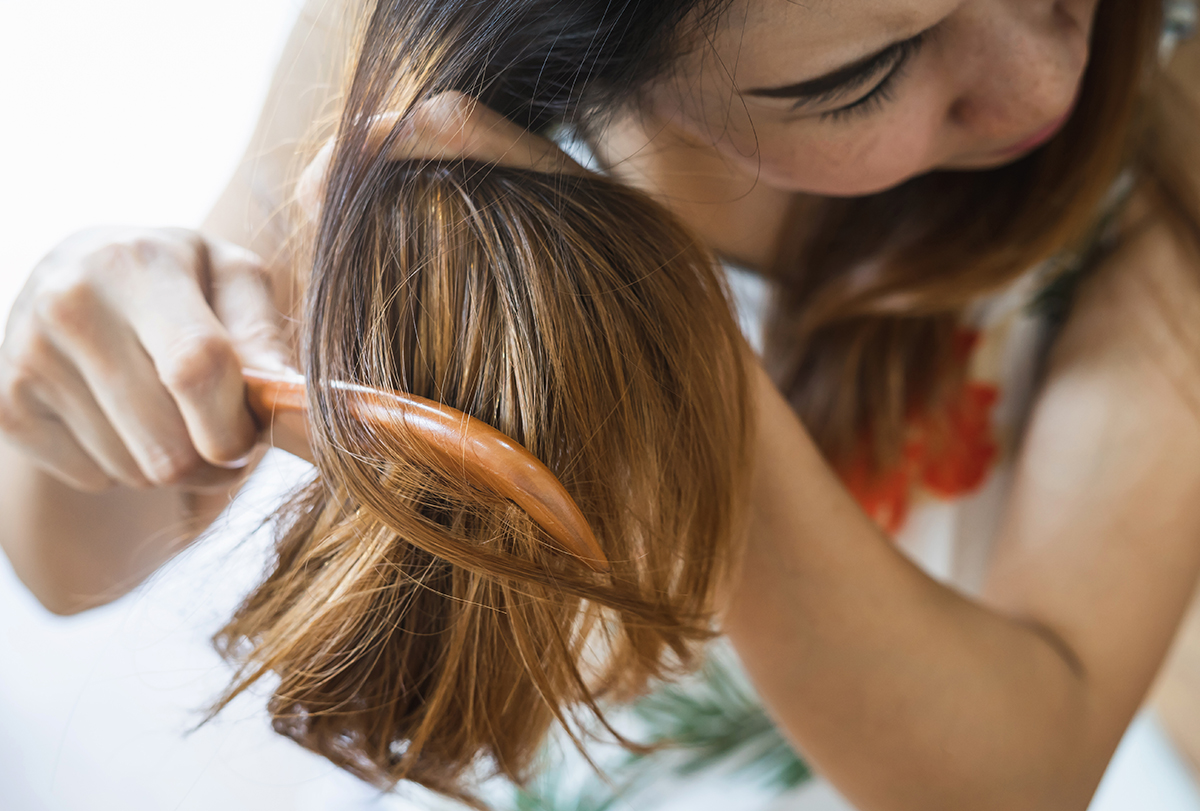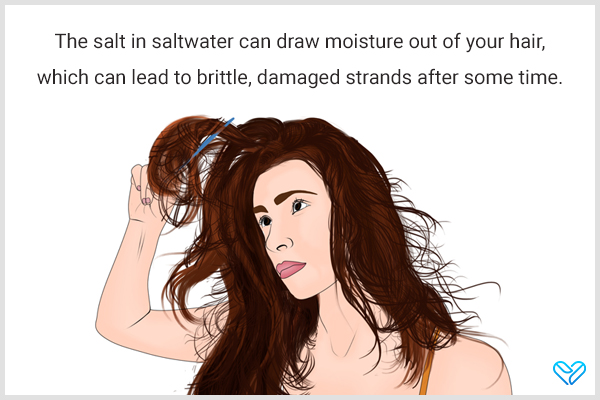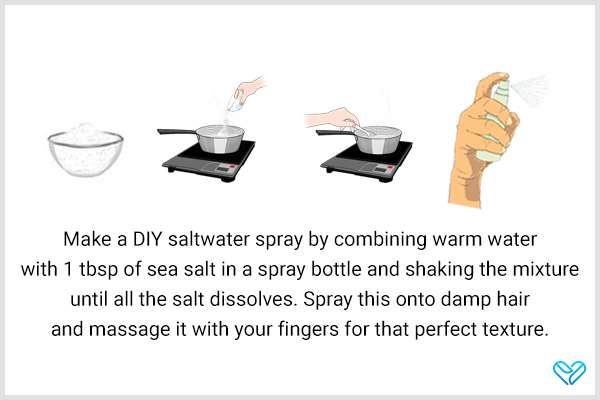In this article:
Have you ever taken off for a quick dive into the ocean and noticed that your hair felt different? Maybe it felt smoother or softer, or maybe it felt more tangled than before.

Whatever the outcome, you can’t deny that saltwater does have an impact on your hair. Now, this impact can be positive or negative. This is what we will zoom into and find out!
Saltwater, as the name indicates, is water that has salt in it. The salt in saltwater is made up of sodium chloride, (1) which can affect your hair in various ways.
Is the effect good or bad? Is saltwater okay to use for your hair? The answer is it depends.
There are some probable advantages to rinsing your hair with saltwater, but there are also downsides. Saltwater can remove excess sebum, which can be beneficial for an oily scalp, but for dry scalp and frizzy hair, it can make your hair dry, brittle, and frizzy.
Let’s swim into the available data and research to learn what saltwater actually does to your hair.
The Benefits of Saltwater for Hair
There are some potential benefits to exposing your hair to saltwater.
1. Treats skin disorders and promotes scalp health
Saltwater can be good for your scalp as it has therapeutic benefits that can help with certain skin disorders.
Balneotherapy and thalassotherapy are types of therapy that involve the use of saltwater and mud products. They have been used for centuries to treat various conditions, including rheumatic and skin disorders. (1)
2. Reduces inflammation
The rich concentration of sodium and chloride ions in saltwater has been found to have a unique mechanism of action when applied topically.
Researchers have shown that saltwater has a role in stimulating cutaneous nerve receptors that help reduce inflammation and promote healing. (1)
The Downsides of Saltwater on Hair

While there are some probable hair advantages of saltwater use, there are also some downsides you should be aware of.
One of the biggest concerns with saltwater is that it can cause hair dryness. The salt in saltwater can draw moisture out of your hair, which can lead to brittle, damaged strands after some time.
Also, if you have colored hair, saltwater can lighten your hair color more quickly. The saltwater bath may increase photosensitivity and make hair more prone to breakage. (2)
Tips for Using Saltwater on Hair
If you do decide to rinse your hair with saltwater, there are some tips you can follow to lessen the potential harm to your hair.
First and foremost, it’s important to wash your hair with fresh water after you’ve been in the ocean or saltwater pool. This can help to expel any leftover salt and minerals stuck to your hair.
Second, consider using a leave-in conditioner or oil treatment to help restore moisture to your strands.
How to Use Saltwater on Hair
Are you ready to have some beachy waves? Here’s how you can use saltwater to get those gorgeous, tousled locks:
Make your own shampoo
In a container, combine castile soap and sea salt in a 2:3 ratio. Mix them until they are blended well. This will give you a homemade shampoo that will help to remove any excess oil and dirt from your hair.
Apply the saltwater shampoo mixture to your hair and work it in for around 15 minutes, making sure to massage your scalp thoroughly. Then, rinse it out thoroughly with cold water to eliminate any residue.
Try a scalp massage

If you don’t want to make your own saltwater shampoo, you can also add 3 tbsp of sea salt in warm water and massage your head with it for 5 min. This will help facilitate blood flow to your hair roots and encourage healthy hair growth.
One more alternative is to create a DIY saltwater spray by combining warm water with 1 tbsp of sea salt in a spray bottle and shaking the mixture until all the salt dissolves. Spray this onto damp hair and massage it with your fingers for that perfect texture.
Most-Asked Questions
Can saltwater damage hair?
Overexposure to saltwater can lead to hair dryness and breakage, but occasional use can be beneficial.
Is it fine to use table salt rather than sea salt for hair treatment?
It is not advised to utilize table salt as it contains additives that can be harmful to hair. Sea salt is a better option as it is a natural product.
Is it safe to use saltwater on colored hair?
Saltwater can cause color fading, so it is recommended to avoid it if you have colored hair.
How frequently should apply saltwater to hair?
It is recommended to use saltwater on the hair once a week at most to avoid over drying and damaging the hair.
Final Word
There are some positives and advantages of exposing your hair to saltwater, but there are also some downsides associated with it. Follow the tips above to reap the benefits of using saltwater on your hair and prevent hair damage.
- Was this article helpful?
- YES, THANKS!NOT REALLY


